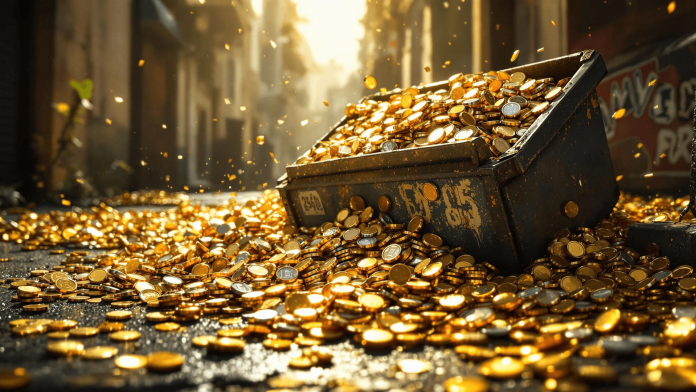For centuries, precious metals have held their value. Their allure stems from two main factors: utility and industrial use and their ability to preserve wealth, as well as the widespread belief that they preserve wealth. However, the true value of these metals hinges on more than their intrinsic properties or historical reputation. Without this critical factor, precious metals lose much of their practical and monetary appeal: a community or network that facilitates trade and exchange.
Why Precious Metals Have Value
- Utility and Industrial Use
Precious metals are valuable for their unique physical and chemical properties. Gold’s resistance to corrosion, silver’s superior conductivity, and platinum’s catalytic abilities make them indispensable in industries ranging from electronics to medicine. This utility establishes a baseline for their value, as there is consistent demand for their practical applications.
- Wealth Conservation
Beyond their industrial uses, precious metals have long been recognized for as a stable store of wealth. In times of economic uncertainty, people turn to precious metals to hedge against inflation, currency volatility, and financial instability. Unlike fiat currency, which governments can print at will, precious metals are finite resources. This perceived scarcity reinforces their status as a long-term wealth preservation tool.
The Missing Factor: Trade and Liquidity
While utility and wealth preservation make precious metals desirable, their value is deeply tied to the ability to use and exchange them. Without a community or network willing to facilitate Trade, the worth of precious metals is significantly diminished.
The Value of Utility Depends on Exchange
Even if a metal has industrial utility, its real-world value depends on the market’s ability to process, buy, and sell it. For example, silver may be essential for solar panels, but without a functioning supply chain to get that silver into the hands of manufacturers, its practical value diminishes.
The Value of Wealth Conservation Requires Liquidity
For those who see precious metals as a store of wealth, the ability to liquidate them into usable currency or barter them for goods and services is essential. Gold bars in a safe are only as valuable as the network willing to exchange them. If no one recognizes their value or is willing to trade, they become little more than shiny paperweights.
The Role of Community and Market in Precious Metal Value
A thriving community and an active market are critical to maintaining the value and liquidity of precious metals. Without these, the utility and wealth conservation benefits of metals cannot be fully realized.
- Facilitating Trade
A local or regional network of buyers, sellers, and traders ensures that precious metals retain their liquidity. Markets—whether in the form of coin shops, trade groups, or even informal barter systems—provide a place to convert metals into cash or goods. Without these connections, the ability to use precious metals as a wealth-preservation tool becomes impractical.
- Establishing Trust
Trade in precious metals requires trust. Buyers and sellers need confidence in the authenticity and value of the metals being exchanged. A strong local network fosters trust through consistent relationships, standardized practices, and a shared understanding of the metals’ worth.
- Encouraging Stability
An active market provides stability for precious metals by ensuring consistent demand and fair pricing. Without a market, fluctuations in value become more unpredictable, and metals can lose their perceived worth as a stable asset.
Cultivating a Precious Metals Network
If you want to maximize the value of your precious metals, invest in cultivating and supporting a local or regional market.
- Connect with Local Buyers and Sellers
Find coin shops, trade organizations, or online groups in your area where you can buy, sell, or trade precious metals. Building relationships with these communities ensures you always have access to a market.
- Promote Local Commerce
Encourage the use of precious metals in local commerce. Some communities are reviving the use of silver coins for transactions, which strengthens their practical and cultural value.
- Educate Others
Spread awareness about the benefits of precious metals and the importance of maintaining a robust market. By increasing local interest and participation, you create a network that enhances the value of your metals.
The True Value of Precious Metals Lies in Community
Precious metals are undeniably valuable, but their worth is deeply tied to your ability to use and exchange them. Whether you view them as industrial tools or as a store of wealth, their value is significantly diminished without an active network to facilitate Trade.
For those investing in precious metals, the most important asset may not be the metals themselves, but the community that surrounds them. By fostering an active local market, you can ensure that your precious metals retain their wealth-preserving and practical value. After all, gold and silver are only as valuable as the hands willing to trade for them.


